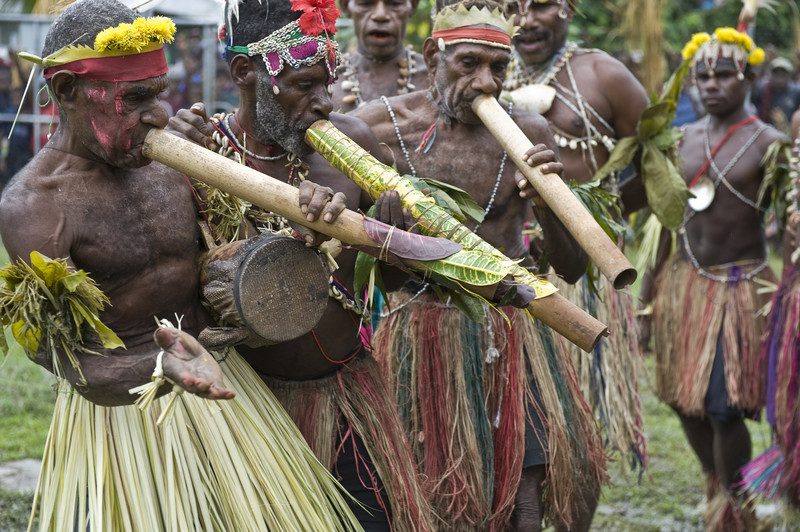Sepik program in Papua New Guinea
The Sepik region of Papua New Guinea is home the largest river system in the country – a pristine environment of tropical rainforests and mountains. It’s also home to thousands of small and distinct communities.
Oxfam Australia is commited to long-term community development in the region, having worked with local NGO partners here since the 1990’s.
In late 2008 Oxfam set up a new field office in Wewak, the provincial capital of East Sepik Province, to provide a greater level of oversight and support for local partners, and to further develop our program in the region. We also hope to expand our program into Sandaun Province (West Sepik) in the future.
Our work through the Sepik office is focused on women’s rights, natural resource management and responding to disasters, including the recent cholera outbreak.
Women’s rights and violence
We partner with the Nana Kundi Crisis Centre to provide crisis counselling and paralegal support for women and families affected by violence and abuse. Our work with the East Sepik Council of Women helps to build their capacity and develop programs to support women’s rights throughout the province.
Natural resource management
We are currently developing an Economic Justice Advocacy Program in the province to help communities to learn their legal and human rights associated with these developments. We also work with women to identify issues, challenges and opportunities linked to economic development in the community.
Helping local organsations to develop
We are developing a new pilot project to strengthen the institutional capacity of local Community Based Organisations (CBO’s). The project helps organisations to improve their accountability, transparency and the impact of their programs – helping them to attract and maintain funding.
Preparing for and responding to emergencies
The East Sepik region is particularly vulnerable to natural disasters, and since late 2008 we have been involved in two emergency responses in the region.
From December 2008 to February 2009 we worked with our partners to assess the impact of tidal surges throughout the Sepik. We also provided household emergency kits and access to clean water for communities on four of the islands off the Sepik coastline.
From October 2009 to February 2010 we played a lead role in responding to a cholera outbreak which swept through communities along the Sepik river. We provided household hygiene kits, education and access to clean water for the communities most affected.
We’re also developing a local disaster preparedness and management program to help communities respond better when future disasters strike.
